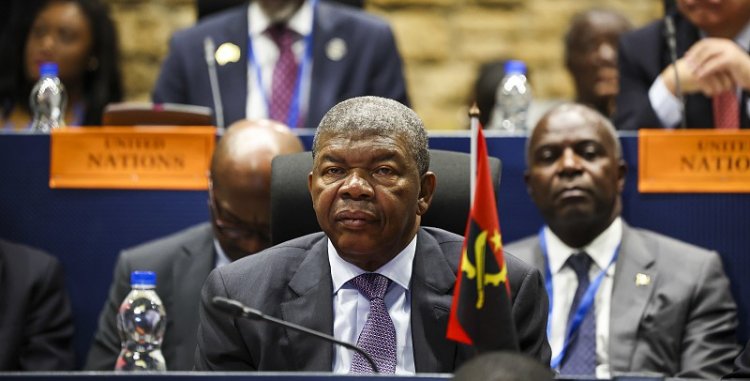In his speech, the head of state spoke about various conflicts, noting that some are closer to resolution, as is the case of Mozambique, whose northernmost province, Cabo Delgado, has been the scene of terrorist attacks by Islamic extremists, a situation that only began to be resolved with the intervention of African forces, including a large contingent from Rwanda.
"The current scenario in Mozambique is considerably calmer and more stable, due to the prompt reaction of SADC (Southern African Development Community), which immediately set in motion and with the positive results that we know today the Joint Force in a State of Alert from SADC, which acts in coordination with the Mozambican Armed Forces", said João Lourenço.
Mozambique, he said, has been "confronted with large-scale violent actions, triggered by extremist armed groups, with the aim of imposing their ideals by force, thus delaying the development prospects of this southern African country".
As for the Central African Republic, a country that has been plunged into civil war and which has Portuguese soldiers highlighted in the international force, the President highlighted the role of Luanda in the most recent attempt at pacification.
"We carried out a series of initiatives, with a view to, among others, convincing the leaders of the various armed groups operating in the country, to abandon the rebellion and establish residence outside Central African territory", he explained.
"Regional efforts led to the adoption of the Joint Roadmap for Peace in the CAR, better known as the Roadmap for Luanda, which defined some axes of activity, of which I highlight the ceasefire and Disarmament, Demobilization, Reintegration and Repatriation, which helped in the as a whole to create a climate of greater distension and understanding" between the parties.
For this reason, he defended, "the current situation in CAR, it is important to recognize, is much better than that which was registered in the year 2020", said the leader, who also praised the first signs of understanding reached between Ethiopia and Tigray People's Liberation Front and the "satisfactory progress" in South Sudan and Sudan.
This news should "encourage us to continue all possible efforts with a view to consolidating the peace processes that are unfolding in a very positive way" in some areas, said the head of state, who also addressed the issue of piracy in the Gulf of Guinea and violence in the Sahel.
João Lourenço recalled that at the last extraordinary summit of the AU, on the themes of Terrorism and Unconstitutional Changes in Africa, he was designated "champion of the African Union for peace and national reconciliation", but warned that this task can only be carried out successfully if there is commitment from all parts.
Regarding the transition processes in Chad, Guinea and Burkina Faso, countries whose governments emerged from coups d'état, the head of state said that "the various political actors in the respective countries have increasingly sought to demonstrate their will and capacity to overcome the differences between the different parties involved, with a view to a negotiated way out of the crisis and a return to democratic normality".
In the case of Mali and Libya, "quite marked differences between the main actors involved in the effort to find solutions to the problems they face still persist", concluded João Lourenço, who preferred to focus his speech on territories other than the east of the Republic Congo, whose situation of instability Luanda has mediated and which was the subject of multilateral meetings on the sidelines of the main meeting of the AU, in Addis Ababa.
The mini-summit on Peace and Security in the East Region of the DRCongo gathered at the same table, among others, the president of Congo, Félix Tshisekedi, and of Rwanda, Paul Kagame, two heads of state who have been mutually responsible for the conflict.
In the joint statement, the countries "reiterated the need to promote internal political and diplomatic dialogue to find a lasting solution to the security crisis throughout the eastern region" of DRC.







